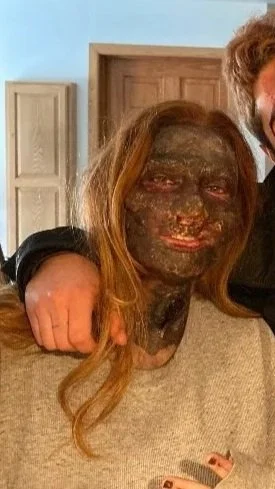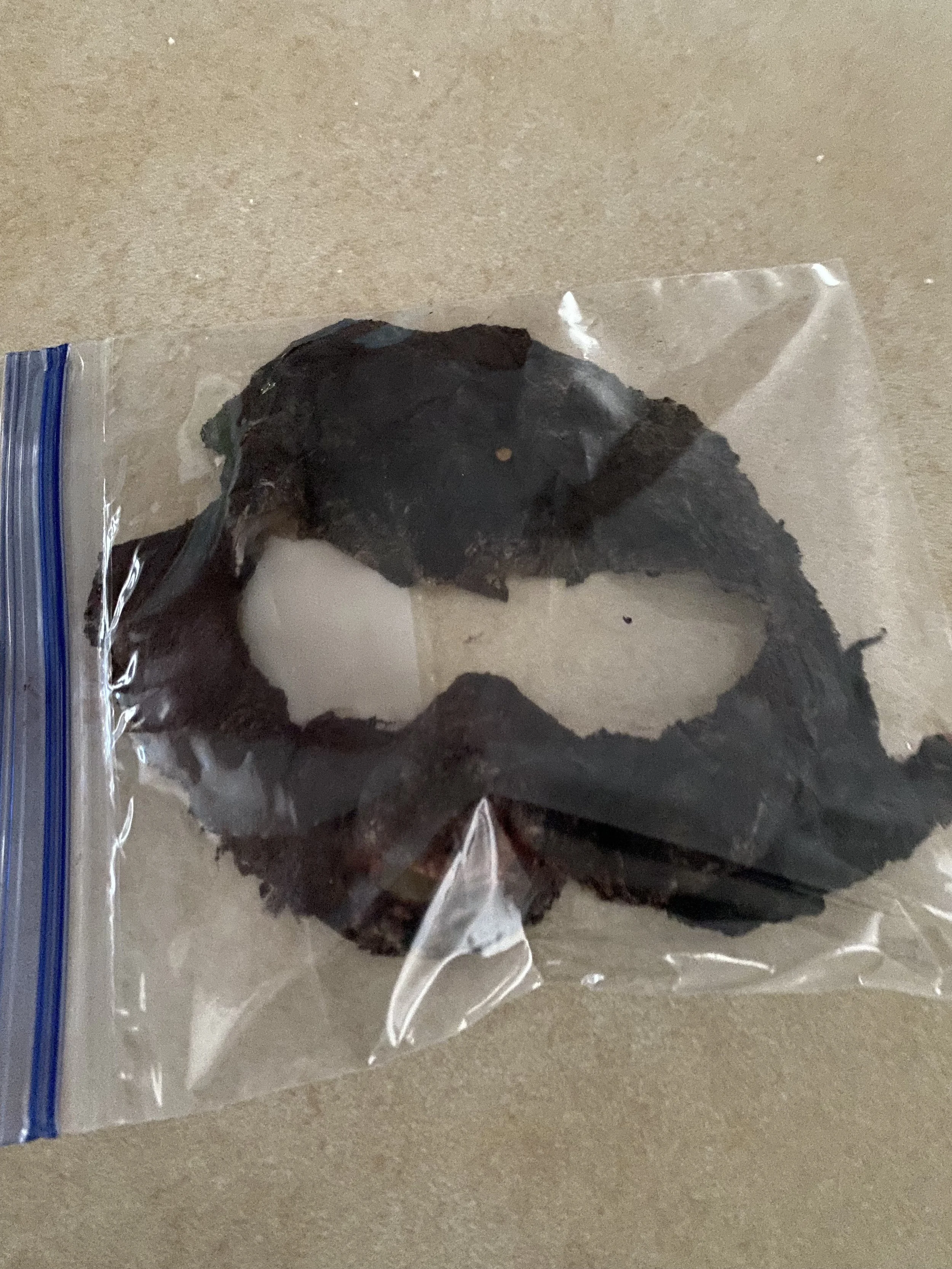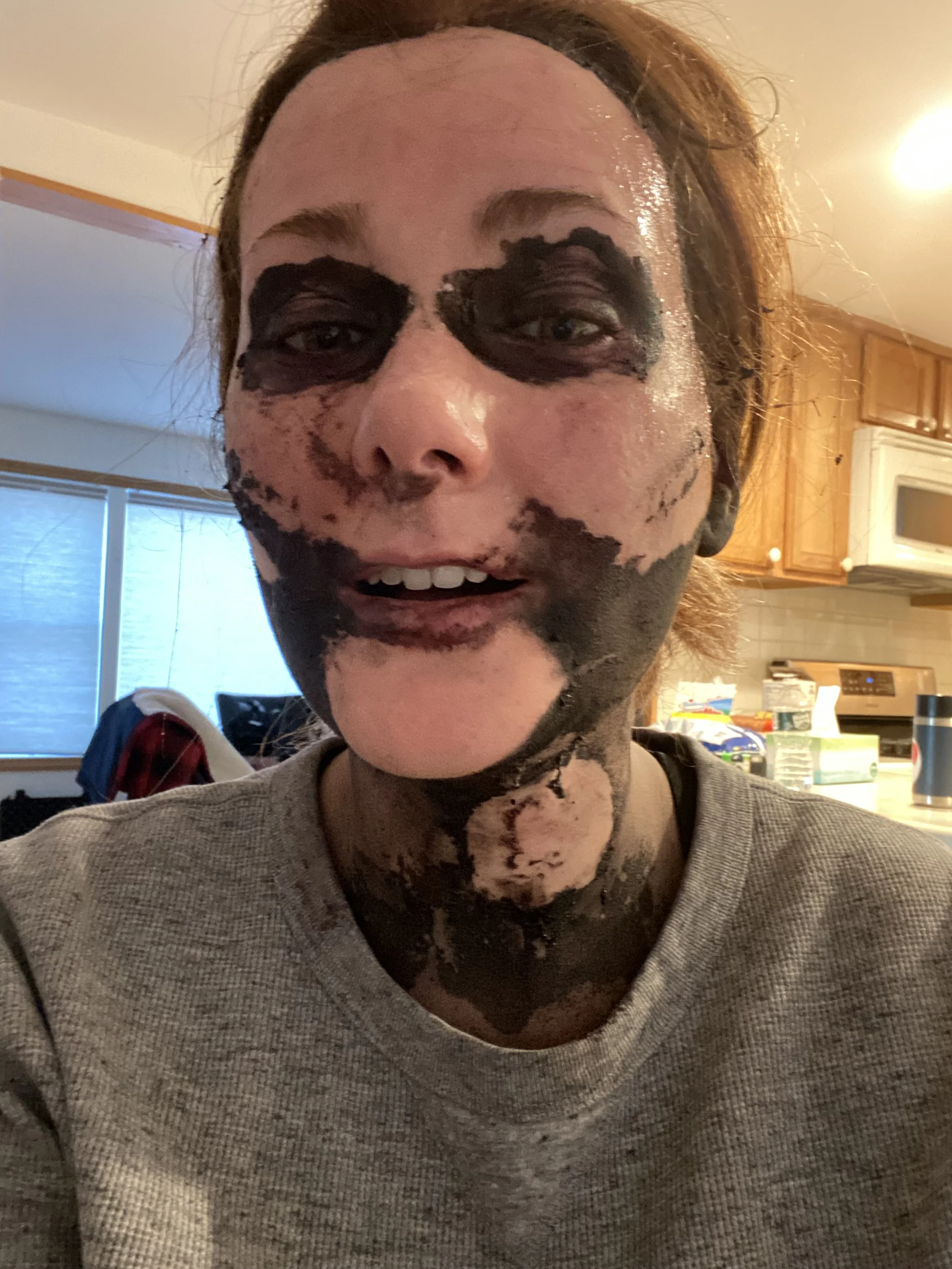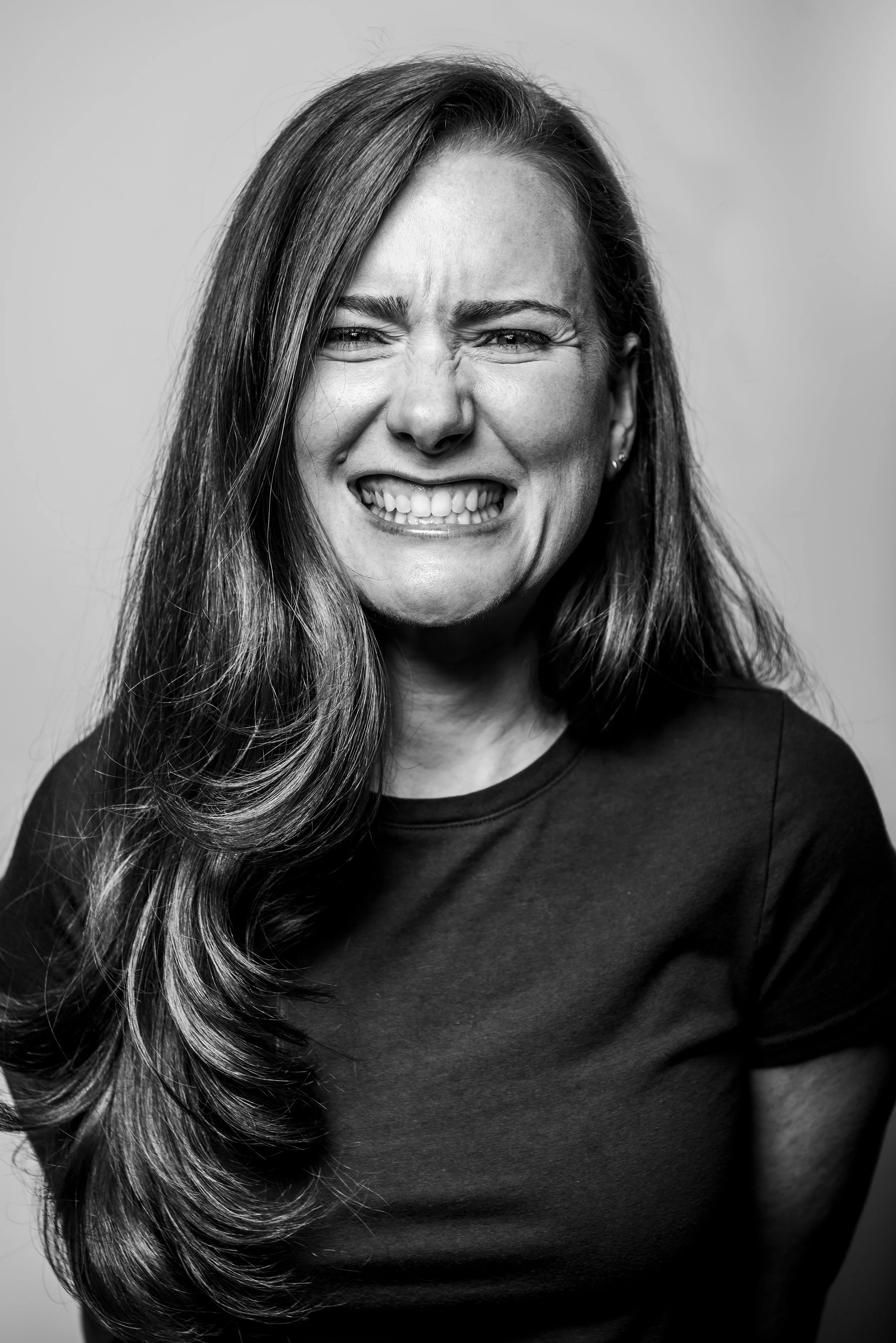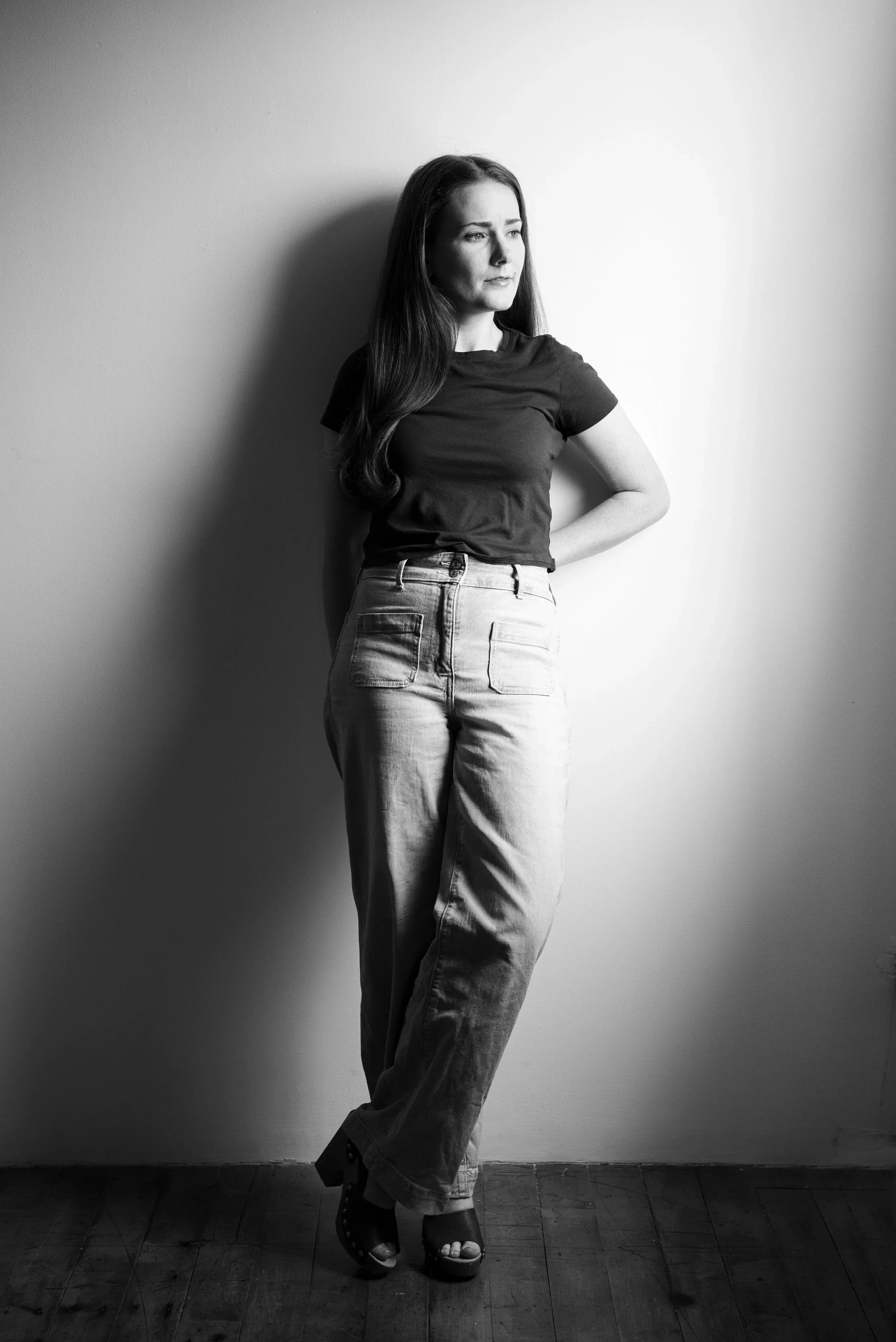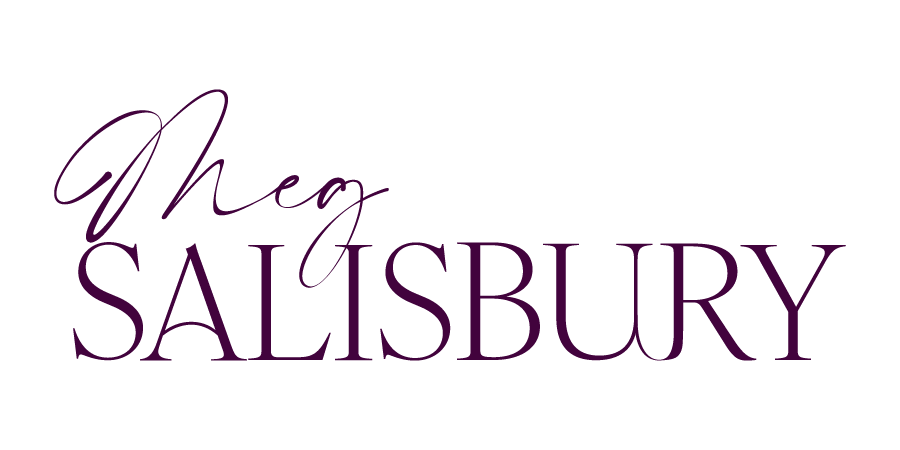The Set Horror Story That Made Me Rethink My Boundaries
Hey friend—welcome back to The Glow Up Year. I’m Meg: actress, model, and your behind-the-scenes bestie for chasing dreams, surviving the plot twists, and building a career that doesn’t require you to burn yourself down to keep other people warm. Around here, we talk about the real stuff: auditions and self-tapes, yes, but also the mindset shifts, the unexpected curveballs, and the choices we make when nobody is watching—the choices that either drain our momentum or quietly build it.
Today’s story is a little Halloween-themed horror tale from set—and the lesson that came out of it. It is not glamorous. It is not the kind of story you put on your homepage with glittery fonts. But it is the story that taught me the difference between being “easy to work with” and being an actor who books meaningful work. Spoiler: they are not the same thing.
The Makeup Chair (a.k.a. My Burnt Marshmallow Era)
It starts with a long drive, a student film, and a promise: full-eye, opaque white contacts and cinematic alien makeup with veiny, otherworldly detail. I was told the transformation would be wild in the best way. I was sold on the vision. I wanted a challenging role that would stretch me and give my reel a distinct tone—something unique that casting directors could clock in seconds. So I said yes to the six hours in the car, yes to staying overnight in a house we were filming in, yes to the micro-budget reality that meant I wouldn’t be paid.
The next morning, I sat in the makeup chair for what I thought would be a four-hour process of controlled transformation. Instead, I stepped into a behind-the-scenes feud I didn’t know existed. The makeup artist had had a disagreement with the director, and her plan shifted—abruptly and unilaterally. The intricate veining we’d discussed disappeared. In its place came cotton. Cotton?. She began gluing cotton to my face and painting it over, building texture on texture until I looked less like a sophisticated alien and more like… a burnt marshmallow. I wish I were exaggerating for comedic effect. I am not. I HAVE PROOF!
If you’ve ever been in a chair like that, you know the power imbalance. You don’t want to aggravate the person who controls your face. You’re trying to be professional, to stay neutral, to honor the chain of command, to believe this will somehow look better on camera than it looks in person. So you breathe. You let them work. You wait for the moment when it all comes together. Four hours later, it hadn’t. As we started shooting, more of my skin peeked through in inconsistent patches. The “creature” looked less cohesive with every setup. My reel—my original reason for being there—was slipping away in real time.
Pro-Tip for Actors: before you commit to FX-heavy projects for your reel, ask for final-look references from prior shoots to protect your time and energy.
The Fight Scene & the “No” That Saved Me
But even that wasn’t the real horror…
The plan called for a fight scene: controlled choreography, a few safe but dynamic beats, and me doing an aggressive push against a wall. The night before, we’d rehearsed and recorded it for muscle memory. Safety had been the focus. And then came the contacts. I had never worn full-eye contacts before; these weren’t just lenses over my irises—they were full sclera. It took twenty minutes, minimum, to get each one in. My eyes were sensitive and uncooperative. When they finally went in, the world went dark. Not “blurry.” Not “difficult.” Dark. I couldn’t see.
The director and camera op approached with a question that still rings in my ears: “You can still fight though, right?”
There are moments in an actor’s life when your training, your professionalism, your good-girl instincts to be agreeable—all of it collides with the fact that you have a body that can be injured. You have a career that depends on that body. And you have the right to remove it from danger. This was one of those moments. Every people-pleasing reflex wanted me to make it work, to prove I wasn’t difficult. But another part of me—the part that has kept me in this business—knew that “difficult” sometimes means “professional.”
“No,” I said. “I can’t fight when I can’t see. It’s not safe.”
There was pressure. Reassurances. Alternatives that still weren’t safe. I held the line. We talked it through and found a solution: shoot the close-ups with the contacts, then take them out and shoot the stunts safely. It wasn’t ideal; it was right. The set moved on.
Later, with the cotton finally coming off my skin and the contacts out, I overheard a conversation on the stairs. The producer-director was complaining about extra money in the budget and not knowing what to do with it. I had driven six hours. I wasn’t being paid. The fight to protect my safety that day had felt like an uphill sprint. Inside, I said the thing I didn’t say out loud: “You could pay us?!?!” I wish I’d said it. In that moment, staying quiet felt like the safe choice. In hindsight, it was just another place where my “yes” was worth less because I refused to let it be supported by a boundary.
Why Boundaries = Better Bookings
I drove home with nothing for my reel and a whole lot for my career. The footage wasn’t usable. The transformation wasn’t the transformation. But the lesson—that stayed.
A “yes” means very little if you don’t know how to say “no.”
As actors we are trained to be malleable, adaptable, easy. We are told not to make waves, to be grateful for the opportunity, to adjust on the fly. And absolutely—being flexible is part of the job. But we are not props. We are not machines. We are human beings with nervous systems and limits. The actors who keep booking aren’t the ones who absorb endless discomfort in silence; they’re the ones who can advocate clearly for the conditions that allow them to do great work.
I used to think boundaries were cold. Walls. Hard stops that people resented. What I know now is that boundaries are actually an invitation—to clarity, to trust, to respect. They invite your collaborators to meet you where great work is possible. They tell directors that you take the work seriously enough to protect it. They let your reps pitch you with confidence because they know your line. Most of all, they give you back your voice.
If you're learning to honor your energy and still chase your dream…
Join my newsletter for gentle boundary guidance, mindset support, and encouragement as you grow your career in a healthy, powerful way.
Captured by: Eve Gagne
And Let’s Be Real: Historically, I Suck at Boundaries…
If this sounds simple, it isn’t. I have been terrible at boundaries. Historically terrible. The people-pleaser in me learned to smooth every edge, to say yes because “yes” kept the peace. But “yes” without discernment empties the tank. It turns exciting opportunities into obligations. It confuses “I’m grateful” with “I’m available.” And in an industry where your energy is currency, you can’t afford to spend it on sets or situations that compromise your safety, your values, or your craft.
How to Set Professional Boundaries
So what does this look like in practice—on sets where things change fast and everyone is improvising around moving targets? For me, it starts long before call time. I decide what I’m not willing to do. I write it down. I share it when it’s relevant. If something needs to be negotiated, it’s done in writing, not as a surprise on the day. And when the day comes, I give a generous, focused yes inside the boundaries I’ve chosen for myself. That’s not being “difficult.” That’s leadership.
Pro-Tip for Actors: “Let me think about it” buys you time to check safety, alignment, and energy before committing.
How to Protect Your Emotional Health
Captured by: Eve Gagne
Emotional boundaries matter just as much. There’s a myth that great performances require you to rip old wounds open and bleed. I don’t subscribe to that. I have depth. I have craft. I have tools. Tear sticks exist. Breathwork exists. Playlists exist. Imagination exists. None of those dilute the performance; they protect the human being giving it. And protecting the human is how you book the next job and the one after that.
Even outside of set life, boundaries shape the way I show up with people I love. I’ve learned to ask, “Do you have the space for me to vent right now?” I want to take care with other people’s nervous systems the way I’m learning to take care of mine. I don’t always get it right. But the effort creates a circle of trust that makes the work better. When your circle knows you will ask for consent before unloading, they trust you more. Paradoxically, that trust makes the relationships stronger and the art more honest.
Good Old Personal Boundaries
And then there are the boundaries with myself—the ones I fail at most often. Rest before I’m burned out, not after. Celebrating a milestone before I move the goalpost. Saying “Let me think about it” when I feel that old reflex to say yes immediately. That sentence is a life raft. It buys me time to check in with my body and my schedule. It honors the fact that my future self is the one who will have to live the yes I say today.
If you’re reading this and thinking, “Okay, but will boundaries make me look ungrateful?”—I hear you. The paradox is that boundaries make you more bookable, not less. Directors remember the actor who advocated clearly and then delivered. Casting notices the actor who knows her range, knows her limits, and brings presence instead of panic. Reps can champion an actor who isn’t quietly imploding. Boundaries don’t shut down opportunity; they channel it. They filter out the jobs that want to consume you and make room for the jobs that want to collaborate with you.
What if the key to booking more meaningful work isn’t doing more — but thinking differently? Let's upgrade your mindset so your momentum becomes inevitable.
Two Special Gifts For You
Boundaries Bingo
I made something to help with this because I needed help with it: Boundary Bingo. It’s exactly what it sounds like—a playful way to build the muscle, one small action at a time. Set one boundary a day. Mark the square. Notice the pattern. Let the tiny wins add up. If you want to try it, get it here! Consider it gamified courage.
6 Week “Stick it to Self-Sabotage” Challenge
Before we wrap, a quick heart-to-heart about booking work, because that’s the point of all of this. The fastest way to become magnetic is not to say yes to everything. It’s to say a wholehearted yes to the right things. It’s to protect your instrument so you can do work you’re proud of. It’s to make choices you can stand behind when the camera stops and the set empties and you’re alone with yourself again. When you do that, your confidence stops being a performance. It becomes your baseline. And casting can feel it.
If you’re ready to go deeper into the mindset piece this is exactly what we work on in my DIY 6 Week “Stick It to Self-Sabotage” Challenge. It’s built for actors who want consistent, meaningful bookings and the inner stability to sustain them. We cover audition confidence, worthiness, fear of failure, procrastination, momentum, and the habits that make all of that stick. There are mini-games (because growth should be engaging), lifetime access to the modules, a bonus on tapping into your “it factor,” and two meditations to help you expand your comfort with success. There’s also a seven-day money-back guarantee—if it’s not your thing, no hard feelings.
This offer runs November 5–12 and this is the last time it’ll be $297 before the program evolves and the price increases. Buy it now and you’ll also get the revamped version in the spring—same transformation, even tighter experience. If you’ve been waiting for a sign to back yourself, consider this it!
One Last Thought
I left that set with nothing for my reel and everything for my career. I learned that professionalism isn’t silent compliance; it’s clear communication. I learned that “no” is a love letter to your future bookings. And I learned that the actors who keep working aren’t the ones who bend until they break—they’re the ones who know when to hold the line.
Your glow-up doesn’t need you to be agreeable. It needs you to be true.
Take care of your craft. Take care of your body. Take care of your voice.
And the next time someone asks, “You can still fight though, right?” when you can’t see a thing—remember the most courageous, most professional answer you can give:
No.
Then go make something brilliant with the energy you just saved.
Want the full behind-the-scenes scoop on my set horror story? Tune into the complete podcast episode below.
Until next time, keep dreaming bigger, keep putting yourself out there, and remember—your next role might be closer than you think.
I’m cheering for you, always.
P.S. If you try Boundary Bingo, tag me so I can celebrate your squares. And if this landed for you, share it with a friend who needs permission to protect their magic.
